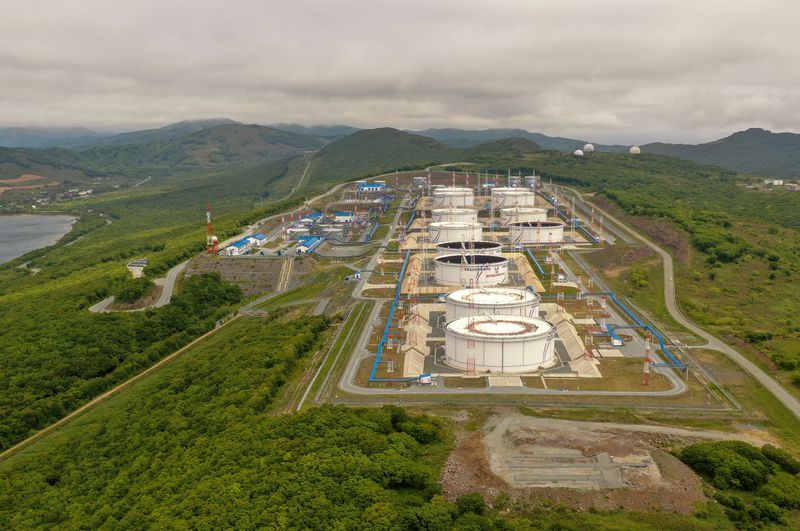Oil prices rise over accusations of breaches to Israel-Hezbollah ceasefire
(Reuters) -Oil prices rose slightly on Friday following a potential renewal of supply risk as Israel and Hezbollah traded accusations of ceasefire violations, and as a delay to an OPEC+ meeting left investors awaiting a decision on its output policy.
Brent crude futures rose 10 cents, or 0.1%, to $73.38 a barrel by 0516 GMT. U.S. West Texas Intermediate crude futures were at $69.17, up 45 cents, or 0.7%, compared to Wednesday's closing price.
On a weekly basis, Brent futures were down 2.4% and the U.S. WTI benchmark was trading 2.9% lower. Trading remained thin due to the Thanksgiving holiday on Thursday that shut U.S. financial markets.
Israel and Lebanese armed group Hezbollah traded accusations on Thursday over alleged violations of their ceasefire that came into effect the day before. The deal had at first appeared to alleviate the potential for supply disruption from a broader conflict that had led to a risk premium for oil.
Oil supplies from the Middle East, though, have been largely unaffected during Israel's parallel conflicts with Hezbollah in Lebanon and Hamas in Gaza.
OPEC+, the Organization of the Petroleum Exporting Countries and allies including Russia, delayed its next policy meeting to Dec. 5 from Dec. 1 to avoid a scheduling conflict. OPEC+ is expected to further extend its production cuts at the meeting.
BMI, a unit of Fitch Solutions, downgraded its Brent price forecast on Friday to $76/bbl in 2025 from $78/bbl previously, citing a "bearish fundamental outlook, ongoing weakness in oil market sentiment and the downside pressure on prices we expect to accrue under Trump."
"Although we expect the OPEC+ group will opt to roll-over the existing cuts into the new year, this will not be sufficient to fully erase the production glut we forecast for next year," BMI analysts said in a note.
Also on Thursday, Russia struck Ukrainian energy facilities for the second time this month. ANZ analysts said the attack risked retaliation that could affect Russian oil supply.
Iran told a U.N. nuclear watchdog it would install more than 6,000 additional uranium-enriching centrifuges at its enrichment plants, a confidential report by the watchdog said on Thursday.
Analysts at Goldman Sachs have said Iranian supply could drop by as much as 1 million barrels per day in the first half of next year if Western powers tighten sanctions enforcement on its crude oil output.
Source: Investing.com
